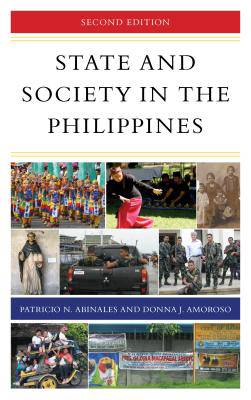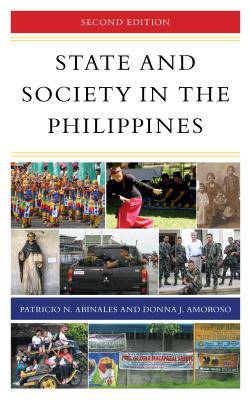
- Afhalen na 1 uur in een winkel met voorraad
- Gratis thuislevering in België vanaf € 30
- Ruim aanbod met 7 miljoen producten
- Afhalen na 1 uur in een winkel met voorraad
- Gratis thuislevering in België vanaf € 30
- Ruim aanbod met 7 miljoen producten
Zoeken
€ 254,45
+ 508 punten
Uitvoering
Omschrijving
This clear and nuanced introduction explores the Philippines' ongoing and deeply charged dilemma of state-society relations through a historical treatment of state formation and the corresponding conflicts and collaboration between government leaders and social forces. Patricio N. Abinales and Donna J. Amoroso examine the long history of institutional weakness in the Philippines and the varied strategies the state has employed to overcome its structural fragility and strengthen its bond with society. The authors argue that this process reflects the country's recurring dilemma: on the one hand is the state's persistent inability to provide essential services, guarantee peace and order, and foster economic development; on the other is the Filipinos' equally enduring suspicions of a strong state. To many citizens, this powerfully evokes the repression of the 1970s and the 1980s that polarized society and cost thousands of lives in repression and resistance and billions of dollars in corruption, setting the nation back years in economic development and profoundly undermining trust in government. The book's historical sweep starts with the polities of the pre-colonial era and continues through the first year of Rodrigo Duterte's controversial presidency.
Specificaties
Betrokkenen
- Auteur(s):
- Uitgeverij:
Inhoud
- Aantal bladzijden:
- 464
- Taal:
- Engels
- Reeks:
Eigenschappen
- Productcode (EAN):
- 9781538103937
- Verschijningsdatum:
- 6/07/2017
- Uitvoering:
- Hardcover
- Formaat:
- Genaaid
- Afmetingen:
- 155 mm x 231 mm
- Gewicht:
- 857 g

Alleen bij Standaard Boekhandel
+ 508 punten op je klantenkaart van Standaard Boekhandel
Beoordelingen
We publiceren alleen reviews die voldoen aan de voorwaarden voor reviews. Bekijk onze voorwaarden voor reviews.








